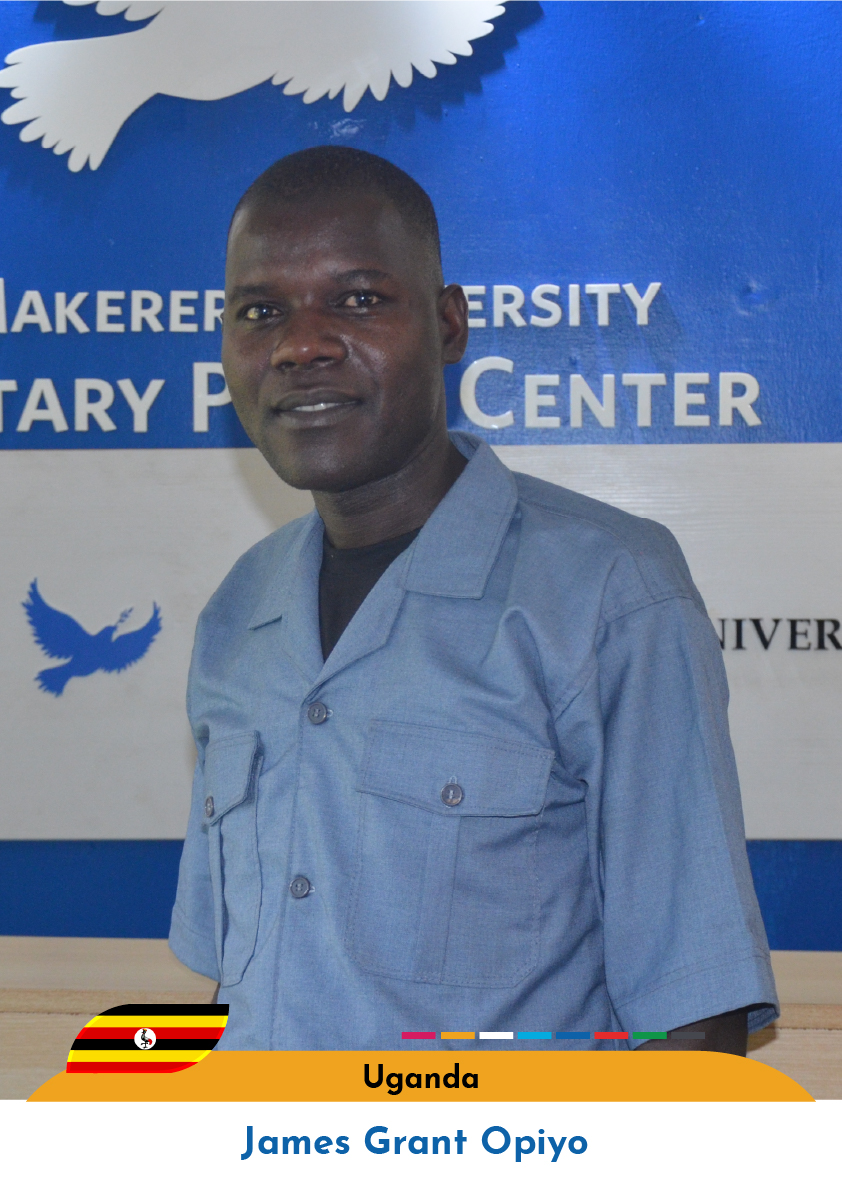James Grant Opiyo – Uganda

Occupation/Title
Founder and Executive Director – Invisible Hope Uganda
Country of Origin
Uganda
Summary/About Me
James Grant Opiyo is the Founder and Executive Director of Invisible Hope Uganda, an NGO dedicated to promoting peaceful coexistence and socio-economic well-being in vulnerable communities in post-conflict Northern Uganda. With over a decade of experience in education, peace-building, economic empowerment, and humanitarian interventions, James has played a crucial role in advancing peace journalism and behavior change communication in refugee settlements and post-conflict regions.
Areas of Expertise
- Peace Journalism
- Economic Empowerment
- Peace-Building
- Humanitarian Interventions
- Behavior Change Communication
Professional Experience
- Founder and Executive Director, Invisible Hope Uganda: Leading initiatives to foster peaceful coexistence and socio-economic development in post-conflict Northern Uganda.
- Peace Journalist: Promoted peace journalism during the LRA insurgency to facilitate constructive dialogue.
- Behavior Change Communication (BCC) Coordinator: Worked in refugee settlements in West Nile and Acholi Sub Regions to address communication needs.
Key Initiative
Social Change Initiative (SCI):Strengthening Women’s Land Rights for Economic Empowerment and Resilience in Acholi Sub Region
- Focus: James’s SCI aims to enhance women’s land rights and economic empowerment in Northern Uganda’s war-affected Acholi Sub Region. The initiative seeks to dismantle negative cultural practices that hinder women’s access to and ownership of land. By working with community support structures and traditional leaders, the SCI promotes positive socio-norm changes to protect and advance women’s rights.
Skills
- Peace-Building
- Economic Empowerment
- Humanitarian Support
- Peace Journalism
- Community Engagement
Additional Brief:
James Grant Opiyo’s SCI focuses on strengthening women’s land rights in Northern Uganda’s Acholi Sub Region. This initiative is designed to counter negative cultural practices and promote women’s access to and ownership of land, thereby supporting their economic empowerment and resilience. James’s work involves collaboration with traditional leaders and community support structures to foster positive socio-norm changes and protect women’s rights.
